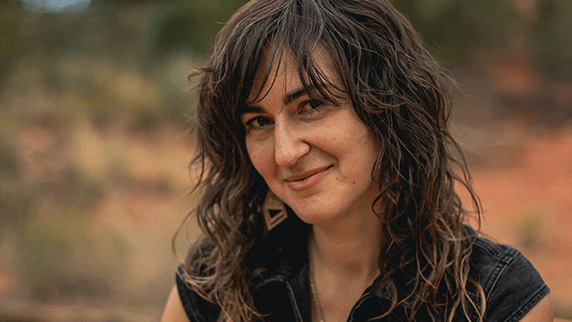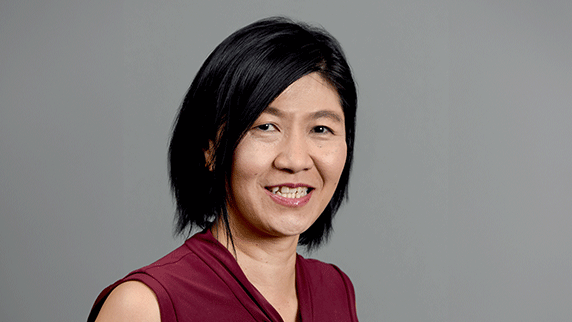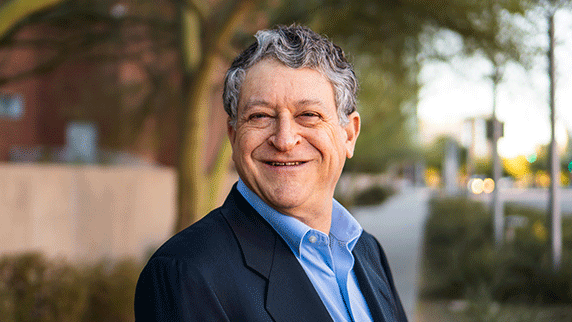
Social psychology
Psychology PhD specialization
Develop innovative solutions to social challenges and societal issues through ASU's PhD program in psychology, specializing in social psychology.
Specialization description
Degree awarded: Psychology, PhD
Social psychology is one of six degree specializations offered through ASU's PhD program in psychology. Working with recognized leaders in the field, students explore human social behavior through topics like:
- Culture
- Evolution
- Prejudice
- Emotion
- Stress
- Cultural change
- Religion
- Human-computer interactions
Several faculty members combine social psychological theory with practical applications to societal issues, giving the program an international reputation for its dual emphasis on theory and practice. The Department of Psychology fosters collaboration, engaging students in research and coursework across all disciplines, preparing graduates to tackle real-world challenges like cultural biases and human interactions.
Important dates
- September 1: Fall 2026 application opens.
- December 5: Fall 2026 application deadline.
Students must submit ASU’s graduate application and the Department of Psychology’s Slideroom application to be considered for admission.
Faculty and research labs
In the Robert B. Cialdini Social Psychology Research Labs, students work alongside highly productive faculty who are experts in social psychology.

Dr. Athena Aktipis
The Cooperation Lab
The Cooperation Lab studies the tension between cooperation and conflict in social living. Using methods like human food sharing and cooperation in multicellularity and cancer, they explore decision-making and principles shaping cooperation, focusing on the benefits and threats of social living and its evolution.

Dr. Adam Cohen
CARMA: Culture, Adaptation,
Religion, Morality,
Anthropomorphism Lab
The CARMA Lab, co-directed by Drs. Adam Cohen and Kathryn Johnson, explores how culture, religion and morality shape behavior. They examine the influence of religious beliefs on social interactions, cultural and individual factors in belief systems and the impact of ecology on social norms. They also study stereotypes, food taboos and programming machines with human values.

Dr. Douglas Kenrick
Evolutionary Social Psychology
Co-Laboratory
Led by Drs. Douglas Kenrick, Steven Neuberg, Vaughn Becker and Michael Varnum, the Evolutionary Social Psychology Co-Laboratory applies evolutionary psychology to study various topics such as motivation, emotion, health, prejudice, aggression and cultural change.

Dr. Virginia Kwan
Culture and Decision Science
Network Lab
The Culture and Decision Science Network studies how people's thoughts, feelings, and behaviors are influenced by culture. They look at how individuals perceive themselves and others, how they think within and outside their culture, and how they engage in digital and physical life.

Dr. Steven Neuberg
Evolution, Ecology, and Social
Behavior Lab
The Evolution, Ecology, and Social Behavior Lab integrates social-cognitive, evolutionary and ecological approaches to investigate the origins, nature and nuances of prejudices, stereotypes and discrimination; the ways that fundamental motivations shape cognition and social behavior; and a wide range of other issues, too.

Dr. Tamera Schneider
Social/Health Psychophysiology Lab
The Social/Health Psychophysiology Lab researchers stress resilience, health persuasion and the science of broadening participation, particularly in STEM disciplines.

Dr. Michelle "Lani" Shiota
SPLAT: Shiota Psychophysiology
Laboratory for Affective Testing
The SPLAT Lab addresses human emotion with emphasis on positive emotions, emotion regulation, emotion in close relationships and emotional mechanisms of behavior change. A growing body of research applies social psychology and affective science to trainings and interventions related to substance use disorder and perception of people experiencing addiction.

Dr. Michael Varnum
Culture and Ecology Lab
The Culture and Ecology Lab focuses on understanding how ecological factors shape behavior, cultural variation and cultural change. The lab uses a wide range of methods to address these questions ranging from traditional experimental and quasi-experimental approaches to analyses of archival and big data.

Dr. Deborah Wu
IDEA: Identity Development,
Emotions and Attitudes Lab
The IDEA Lab examines how social identities and emotions shape our experiences, attitudes and behaviors. Specifically, the lab investigates the antecedents and consequences of stereotyping and prejudice, with the ultimate goal of creating interventions to improve intergroup attitudes. The lab utilizes multiple methods, including longitudinal, experimental and psychophysiological approaches.
Courses and electives
Core courses. Two required advanced social psychology courses, in addition to topical seminars offered by faculty in the social psychology area.
Skill courses. Six required courses that integrate quantitative methodologies and professional development into students' work.
Elective breadth courses. Graduate-level courses in the developmental, biological, cognitive or clinical bases of human behavior designed to provide students with a broader perspective.
Pending course availability, a teaching seminar offered by a member of the social psychology faculty may be considered as an additional elective.
Research activities. Milestone courses, involving independent study and regular meetings with a faculty member to discuss assignments and conduct research.
Dissertation. Supervised research including literature review, research, data collection and analysis, and writing.
Graduate students in the social psychology training area are required to complete 84 credit hours. The coursework is customized for each student, considering their prior training, research goals and mentor and committee guidance. The program typically takes five years to complete, with an opportunity to earn a master's degree en route to the PhD. Throughout the program, students aim to make unique scholarly contributions through their research.
Plan of study (iPOS)
Year 1
In the initial year of residence, students take the first required advanced social psychology course, a seminar on current topics and quantitative methodology classes. They also start participating in research, working with multiple faculty members.
Year 2
In the second year, students take the second required social psychology course and further their statistical skills through quantitative classes. They defend an independent research project as a master’s thesis and complete electives within and outside the department.
Year 3
In the third year, students focus on a major area paper, which may be a topic review, grant proposal or meta-analysis. This leads to an oral exam covering the paper and other topics, advancing the student to PhD candidacy upon successful defense.
Year 4 and 5
In the final two years, students continue research and complete their doctoral dissertation. They may gain teaching experience through a graduate seminar and participate in bi-weekly research meetings for idea exchange and feedback.

The social psychology specialization offers training that enables students to become world class researchers, teachers and practitioners. Although most graduates pursue faculty positions, many have also found opportunities in industry and the nonprofit sector.
Faculty members serve as both educators and mentors, contributing to the ongoing success of the discipline through their graduates' accomplishments.
Get in touch
- For questions about the specialization, email the social psychology area head, Dr. Athena Aktipis, directly at [email protected].